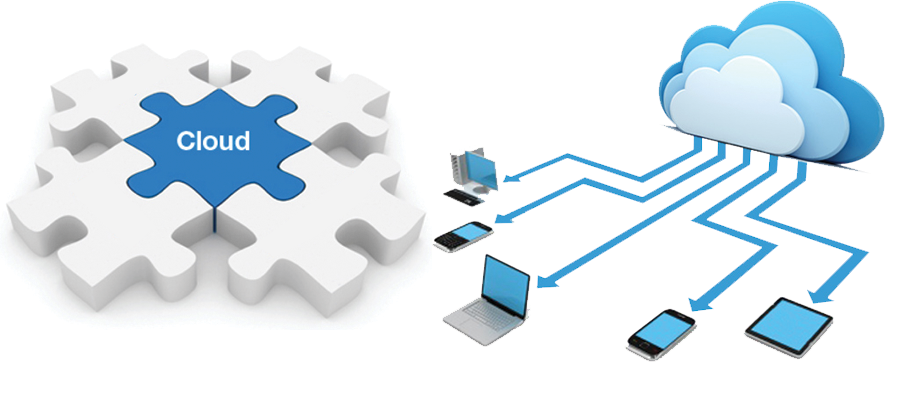Technology
Cloud Technology
 Cloud technology is the consequence of the evolution and adoption of existing technologies and paradigms. The goal of cloud computing is to allow users to take benefit from all of these technologies, without the need for deep knowledge about or expertise with each one of them. The cloud aims to cut costs, and helps the users focus on their core business instead of being impeded by IT obstacles.The main enabling technology for cloud computing is virtualization. Virtualization software separates a physical computing device into one or more "virtual" devices, each of which can be easily used and managed to perform computing tasks. With operating system–level virtualization essentially creating a scalable system of multiple independent computing devices, idle computing resources can be allocated and used more efficiently. Virtualization provides the agility required to speed up IT operations, and reduces cost by increasing infrastructure utilization. Autonomic computing automates the process through which the user can provision resources on-demand. By minimizing user involvement, automation speeds up the process, reduces labor costs and reduces the possibility of human errors.Users routinely face difficult business problems. Cloud computing adopts concepts from Service-oriented Architecture (SOA) that can help the user break these problems into services that can be integrated to provide a solution. Cloud computing provides all of its resources as services, and makes use of the well-established standards and best practices gained in the domain of SOA to allow global and easy access to cloud services in a standardized way
Cloud technology is the consequence of the evolution and adoption of existing technologies and paradigms. The goal of cloud computing is to allow users to take benefit from all of these technologies, without the need for deep knowledge about or expertise with each one of them. The cloud aims to cut costs, and helps the users focus on their core business instead of being impeded by IT obstacles.The main enabling technology for cloud computing is virtualization. Virtualization software separates a physical computing device into one or more "virtual" devices, each of which can be easily used and managed to perform computing tasks. With operating system–level virtualization essentially creating a scalable system of multiple independent computing devices, idle computing resources can be allocated and used more efficiently. Virtualization provides the agility required to speed up IT operations, and reduces cost by increasing infrastructure utilization. Autonomic computing automates the process through which the user can provision resources on-demand. By minimizing user involvement, automation speeds up the process, reduces labor costs and reduces the possibility of human errors.Users routinely face difficult business problems. Cloud computing adopts concepts from Service-oriented Architecture (SOA) that can help the user break these problems into services that can be integrated to provide a solution. Cloud computing provides all of its resources as services, and makes use of the well-established standards and best practices gained in the domain of SOA to allow global and easy access to cloud services in a standardized way
Our Software-defined infrastructure(SDI)
We provide robust SDI solutions across the broadest range of software and hardware platforms—from leading vendors as well as open-source. Whether it’s a move to software-defined compute, storage, or networking, SDI builds agile enterprises ready for cloud innovation. Increasing demands are faced by businesses towards the need for rapid innovation and even better customer experiences. IT needs to deliver efficient, agile services in new ways to meet those expectations. Fortunately, the technology barriers that once kept businesses from building scalable data centers are rapidly falling away. SDI paves the way for enterprise clouds that are optimized to accommodate traditional and cloud-native applications with ease. With SDI-enabled clouds, our most strategic on-premises workloads are managed with ease while gaining a seamless pathway to a hybrid cloud environment as business needs change. SDI delivers a huge number of positive impacts for your business. Legacy enterprise storage systems are a key area for transformation with software-defined storage. So are enterprise networks, which can benefit greatly from virtualization and a software-defined architecture that allows for more fine-grained network security policies. Highly virtualized businesses will want to explore cloud orchestration capabilities in SDI solutions for greater levels of programmatic controls and automation. This results in high-functioning, efficient, and agile data center ready to drive cloud innovation for our business.

